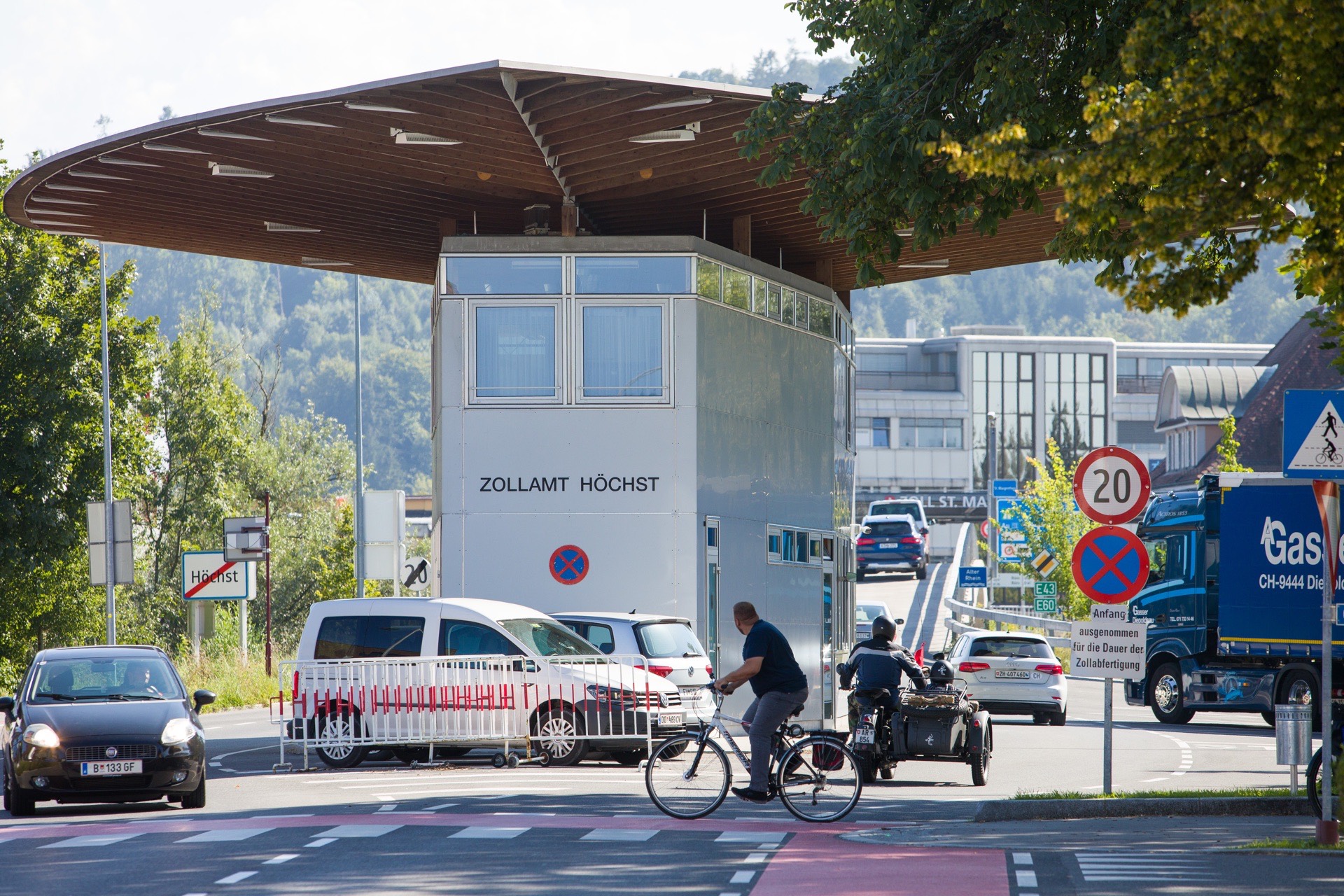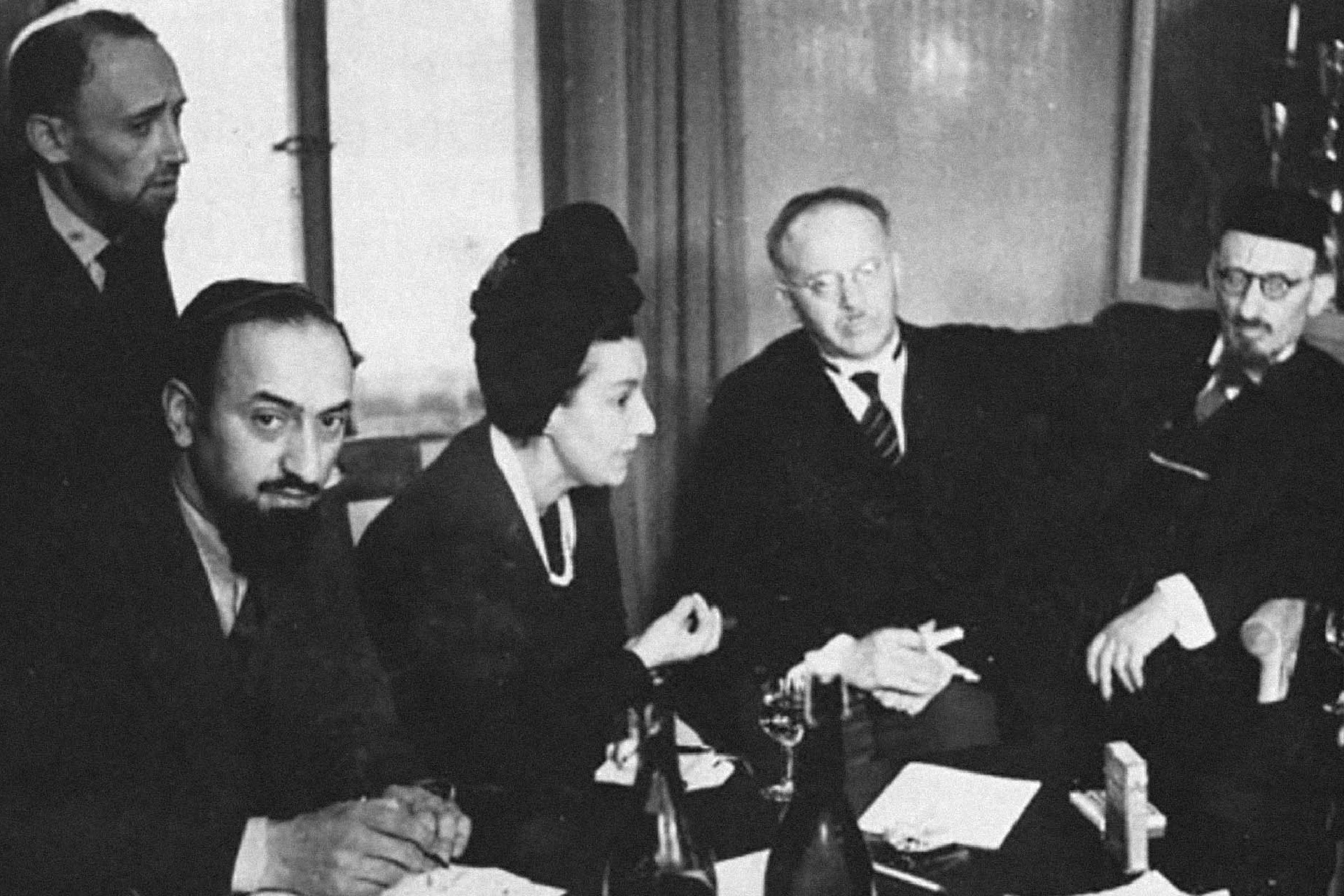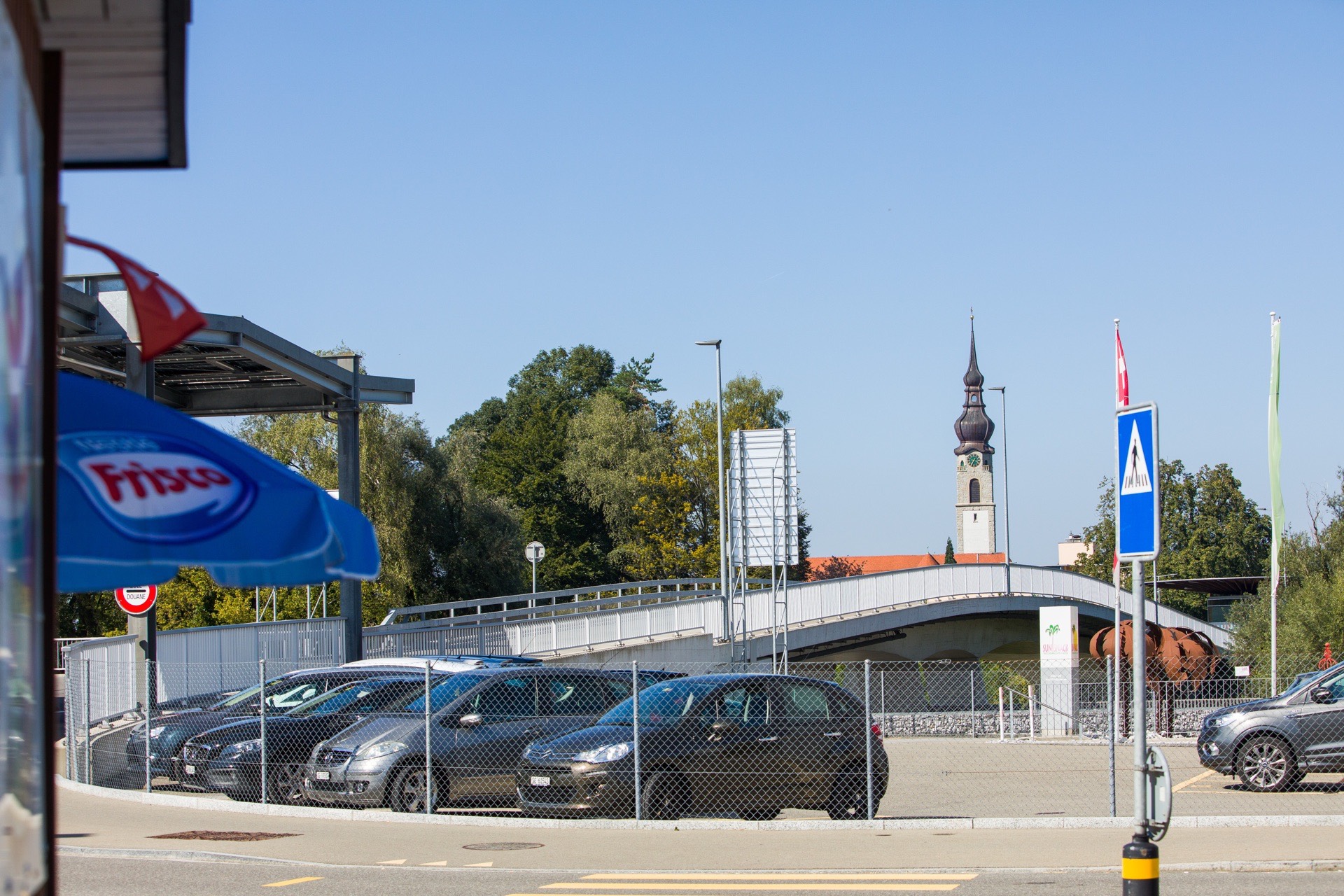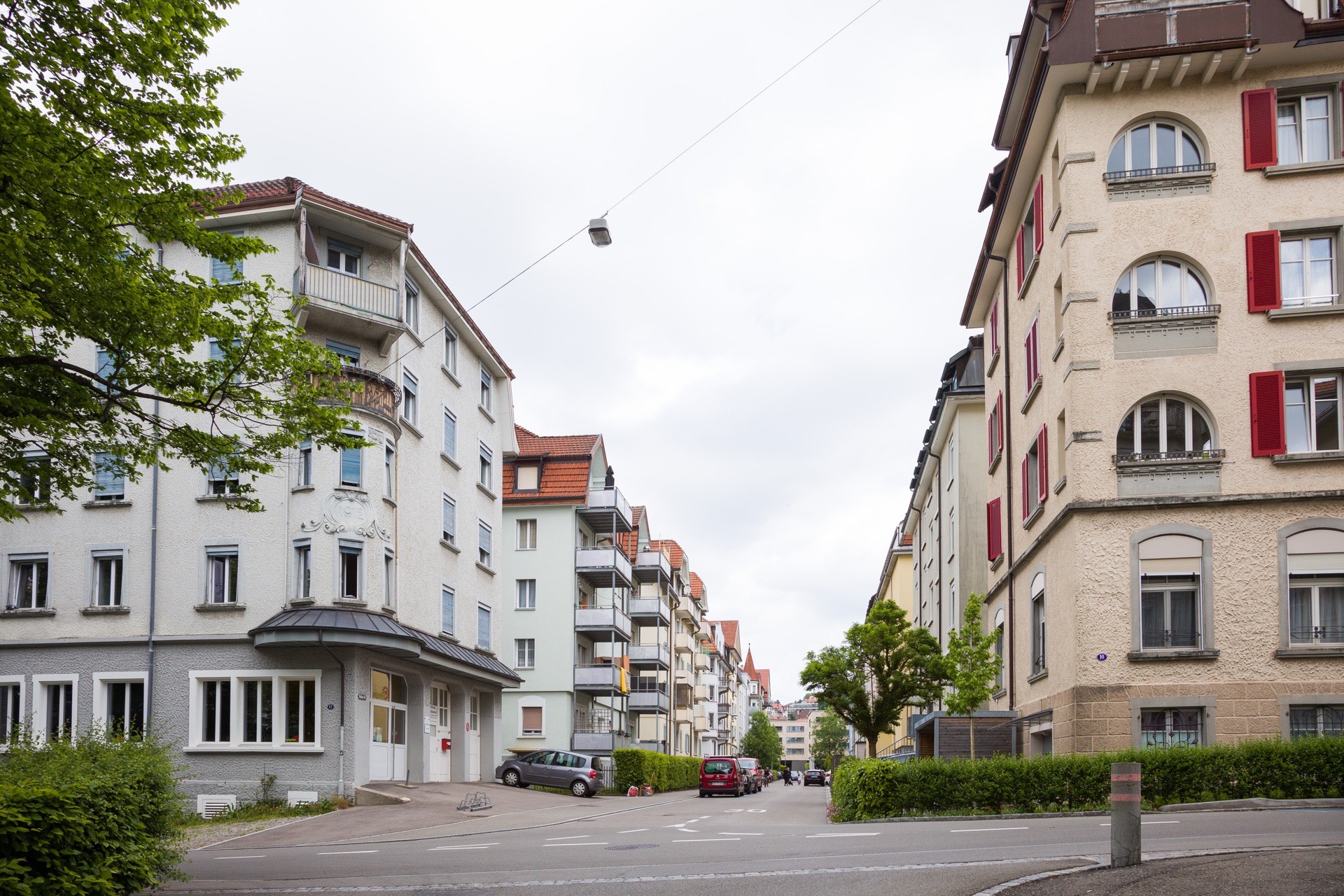Recha Sternbuch> 1938 - 1944
11 Recha Sternbuch
Rescue attempts on all fronts: Recha and Isaac Sternbuch
St. Gall – Montreux, 1938 to 1944
“She had tremendous charisma. And a conversation with her was never an average conversation. - I would say she had a mission, a God mission. I don't know ... I'm not that devout and religious, but ... You can't classify a person like her among normal people. She wasn't normal either ... with her family ... nothing interested her ... she didn't sleep, she didn't eat ... she wanted to save. And she did save.”[1]
Gutta Sternbuch remembers her sister-in-law Recha Sternbuch in conversation with Stefan Keller.
“She also had the strange feeling after the war that she had done nothing. And especially that her parents had been murdered. There was a time when Switzerland said that if someone had a brother, a sister or parents, they could bring them in. And she had her parents in Belgium. But because she had acted against the Swiss laws, they didn't let her parents come in. But they punished her with that. And somehow she couldn't cope with that. That she is practically guilty, in a certain sense, for the death of her parents. They were deported to Auschwitz.”[2]
Recha Sternbuch came from a pious family. In 1905, she was born as the daughter of Rabbi Mordechai Rottenberg in Wadowice in Galicia.
In 1928, she married Isaac Sternbuch in Basel and from 1929 they lived in St. Gall. The family runs a factory and a store for linen and raincoats. In 1938, the Sternbuchs opened a kosher refugee shelter for Orthodox refugees in Waldaustraße. Together with her husband and his brother Elias Sternbuch, she organizes a complex network of refugee helpers, which involved not only the worker Edmund Fleisch from Altach and the greengrocer Willi Hutter in Diepoldsau , but also the Swiss consul in Bregenz, Ernest Prodolliet, and later the representative of the Vatican in Bern, Philippe Bernardini.
Already in 1938, at Recha Sternbuch's urging, Prodolliet issued Swiss return visas to three hundred refugees, enabling them to travel through Switzerland to the Italian Adriatic and embark for Palestine. However, the Sternbuchs worked particularly closely with Paul Grüninger. Again and again they send refugees to him who have just arrived. Their dates of entry are backdated so that they can stay. In November, Recha Sternbuch herself brings the children of a relative from Munich to Switzerland. And on the last day of 1938, Sternbuch drives to the customs in Diepoldsau to bring a family from Vienna across the border. Paul Grüninger is also in Diepoldsau that evening. It is not long before Grüninger is dismissed and put on trial.
“I was amazed that such a man could become a police commander.”
Elias Sternbuch remembers Grüninger.
“The man sacrificed himself. He knew that his position was finished if he broke the law like that. (...) He showed that he had a dignity. (...) He may have acted against the law, but he saved the dignity, the dignity of Switzerland! (...) It would not have been a feat to say: Well, I don't want to have anything to do with this. Grüninger put his personal interests behind that and put his family and everything behind. (...) He knew exactly that if he let 1000 people in and legalized it, that it would eventually burst. But he did it anyway. – He was weak in nature by himself. But here he was big.”[3]
In May 1939, Recha Sternbuch also gets arrested. She is accused of smuggling, illegally accommodating refugees in her house, forming a network to aid escape, and obtaining illegal visas in St. Gallen, and she remains in custody for a short time. Above all, the police want to hear names, those of her helpers, none of whom are revealed. Only after a new arrest in 1941 and further investigations against her, she was acquitted at the end of June 1942 for lack of evidence.
But their tireless fight for the lives of the persecuted has by no means ceased. As early as 1941, the Sternbuchs founded an aid association in Montreux for Jewish refugees in Shanghai.
In September 1942, they are involved in informing Jewish personalities in the USA about the mass deportations from the Warsaw Ghetto and ask the US government for help. At that time, initial reports of systematic mass extermination, such as the famous Riegner telegram from the World Jewish Congress bureau chief in Geneva, are still ignored and treated as wild rumors inspired by Jewish fears.
In May 1944, through the War Refugee Board representative in Bern, Roswell McClelland, they send a desperate plea to Washington to bomb the rail lines on which Hungarian Jews were being sent to their deaths at Auschwitz:
“We have received messages from Slovakia,” Isaac Sternbuch writes, “according to which they ask that air raids be made soon on the two towns of Kaschau (Kosice) as a transit point for military transports, and Presov as a hub for the deportations coming through Kaschau, and also on the entire railroad between the two places, which passes over a short bridge about 30 meters long. This is the only direct route from Hungary to Poland, while all other small and short routes leading to the east can only be used in Hungary, but not for traffic to Poland, as there are already battlefields there. Do what is necessary so that the bombardment is repeated at short intervals to prevent reconstruction.”[4]
In 1944, the Sternbuchs are finally involved in the ransom of 1,200 Jews from the “Theresienstadt Ghetto”. As a middleman, they deliberately send an anti-Semitic Nazi sympathizer from Bern to Berlin, former Federal Councillor Jean-Marie Musy, who is apparently looking for ways to rehabilitate himself in the face of the foreseeable German defeat and whom they trust most to succeed in the mission.
Recommended reading:
Stefan Keller, Grüningers Fall. Geschichten von Flucht und Hilfe. Zurich 1993 (1998); Jörg Krummenacher, Flüchtiges Glück. Die Flüchtlinge im Grenzkanton St. Gallen zur Zeit des Nationalsozialismus. Zurich 2005.
11 Recha Sternbuch
Rescue attempts on all fronts: Recha and Isaac Sternbuch
St. Gall – Montreux, 1938 to 1944
“She had tremendous charisma. And a conversation with her was never an average conversation. - I would say she had a mission, a God mission. I don't know ... I'm not that devout and religious, but ... You can't classify a person like her among normal people. She wasn't normal either ... with her family ... nothing interested her ... she didn't sleep, she didn't eat ... she wanted to save. And she did save.”[1]
Gutta Sternbuch remembers her sister-in-law Recha Sternbuch in conversation with Stefan Keller.
“She also had the strange feeling after the war that she had done nothing. And especially that her parents had been murdered. There was a time when Switzerland said that if someone had a brother, a sister or parents, they could bring them in. And she had her parents in Belgium. But because she had acted against the Swiss laws, they didn't let her parents come in. But they punished her with that. And somehow she couldn't cope with that. That she is practically guilty, in a certain sense, for the death of her parents. They were deported to Auschwitz.”[2]
Recha Sternbuch came from a pious family. In 1905, she was born as the daughter of Rabbi Mordechai Rottenberg in Wadowice in Galicia.
In 1928, she married Isaac Sternbuch in Basel and from 1929 they lived in St. Gall. The family runs a factory and a store for linen and raincoats. In 1938, the Sternbuchs opened a kosher refugee shelter for Orthodox refugees in Waldaustraße. Together with her husband and his brother Elias Sternbuch, she organizes a complex network of refugee helpers, which involved not only the worker Edmund Fleisch from Altach and the greengrocer Willi Hutter in Diepoldsau , but also the Swiss consul in Bregenz, Ernest Prodolliet, and later the representative of the Vatican in Bern, Philippe Bernardini.
Already in 1938, at Recha Sternbuch's urging, Prodolliet issued Swiss return visas to three hundred refugees, enabling them to travel through Switzerland to the Italian Adriatic and embark for Palestine. However, the Sternbuchs worked particularly closely with Paul Grüninger. Again and again they send refugees to him who have just arrived. Their dates of entry are backdated so that they can stay. In November, Recha Sternbuch herself brings the children of a relative from Munich to Switzerland. And on the last day of 1938, Sternbuch drives to the customs in Diepoldsau to bring a family from Vienna across the border. Paul Grüninger is also in Diepoldsau that evening. It is not long before Grüninger is dismissed and put on trial.
“I was amazed that such a man could become a police commander.”
Elias Sternbuch remembers Grüninger.
“The man sacrificed himself. He knew that his position was finished if he broke the law like that. (...) He showed that he had a dignity. (...) He may have acted against the law, but he saved the dignity, the dignity of Switzerland! (...) It would not have been a feat to say: Well, I don't want to have anything to do with this. Grüninger put his personal interests behind that and put his family and everything behind. (...) He knew exactly that if he let 1000 people in and legalized it, that it would eventually burst. But he did it anyway. – He was weak in nature by himself. But here he was big.”[3]
In May 1939, Recha Sternbuch also gets arrested. She is accused of smuggling, illegally accommodating refugees in her house, forming a network to aid escape, and obtaining illegal visas in St. Gallen, and she remains in custody for a short time. Above all, the police want to hear names, those of her helpers, none of whom are revealed. Only after a new arrest in 1941 and further investigations against her, she was acquitted at the end of June 1942 for lack of evidence.
But their tireless fight for the lives of the persecuted has by no means ceased. As early as 1941, the Sternbuchs founded an aid association in Montreux for Jewish refugees in Shanghai.
In September 1942, they are involved in informing Jewish personalities in the USA about the mass deportations from the Warsaw Ghetto and ask the US government for help. At that time, initial reports of systematic mass extermination, such as the famous Riegner telegram from the World Jewish Congress bureau chief in Geneva, are still ignored and treated as wild rumors inspired by Jewish fears.
In May 1944, through the War Refugee Board representative in Bern, Roswell McClelland, they send a desperate plea to Washington to bomb the rail lines on which Hungarian Jews were being sent to their deaths at Auschwitz:
“We have received messages from Slovakia,” Isaac Sternbuch writes, “according to which they ask that air raids be made soon on the two towns of Kaschau (Kosice) as a transit point for military transports, and Presov as a hub for the deportations coming through Kaschau, and also on the entire railroad between the two places, which passes over a short bridge about 30 meters long. This is the only direct route from Hungary to Poland, while all other small and short routes leading to the east can only be used in Hungary, but not for traffic to Poland, as there are already battlefields there. Do what is necessary so that the bombardment is repeated at short intervals to prevent reconstruction.”[4]
In 1944, the Sternbuchs are finally involved in the ransom of 1,200 Jews from the “Theresienstadt Ghetto”. As a middleman, they deliberately send an anti-Semitic Nazi sympathizer from Bern to Berlin, former Federal Councillor Jean-Marie Musy, who is apparently looking for ways to rehabilitate himself in the face of the foreseeable German defeat and whom they trust most to succeed in the mission.
Recommended reading:
Stefan Keller, Grüningers Fall. Geschichten von Flucht und Hilfe. Zurich 1993 (1998); Jörg Krummenacher, Flüchtiges Glück. Die Flüchtlinge im Grenzkanton St. Gallen zur Zeit des Nationalsozialismus. Zurich 2005.




